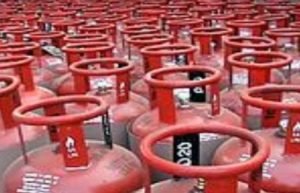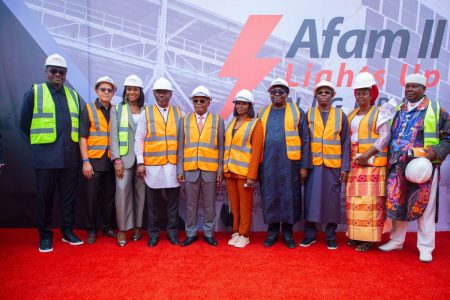
Lagos — Nigeria is on course to become the world’s largest manufacturer of composite cylinders following the recent ground breaking of Rungas ALFA plant at Alaro City, Free Trade Zone, Epe, Lagos State.
The facility and its sister plant – Rungas Prime – in Polaku, Bayelsa State are being developed with equity investments by the Nigerian Content Development and Monitoring Board, NCDMB, and will on completion have a combined capacity of over 1.2 million cylinders per annum, surpassing the record held by a European firm that produces 900 cylinders.
Conducting the ground breaking, the Minister of State for Petroleum Resources, Chief Timipre Sylva, described the cylinder plants as key to achieving deeper penetration of Liquified Petroleum Gas, LPG, and Compressed Natural Gas, CNG, in line with the Federal Government’s commitment to ensure economic diversification using the oil and gas industry as a pivot.
He stated that cylinders are the most visible element of the LPG value chain and the manufacturing facilities will not only bring affordable and durable cylinders to Nigeria but also create countless direct and indirect jobs for citizens.
Sylva commended NCDMB for recording another milestone in the drive to enhance domestic participation and capacity building of indigenous companies in the oil and gas industry.
The Executive Secretary of NCDMB, Engr. Simbi Kesiye Wabote gave the expected completion date of the facility as 12 months and underscored that the Board had proven that it delivers successfully on any project it participates in.
He said the ground-breaking event confirms that Private-Public Partnership is a pragmatic and workable model for putting in place the needed infrastructure, facilities and manufacturing base, to position Nigeria for the opportunities that abound in the region and continent.
He also affirmed the Board’s excitement for being an active participant and a front-runner in taking practical steps to deliver on lofty goals of the ‘’Decade of Gas’’ that is being championed by the Minister of State for Petroleum Resources.
Other interventions by the Board in the gas value-chain include development of LPG storage terminals and jetties, inland gas processing for the production of LPG and propane, infrastructure for gas gathering and injection into gas pipeline networks and CNG facilities.
He said NCDMB was deliberate in going for the Type-3 Composite LPG cylinders considering the unique features such as safety, lightweight, and durability. “Our handshake with the Rungas Group will catalyse the transition away from the heavy metallic LPG cylinders. It will also address the issue of high importation of LPG cylinders with the attendant economic losses,” he added.
Follow us on twitter



